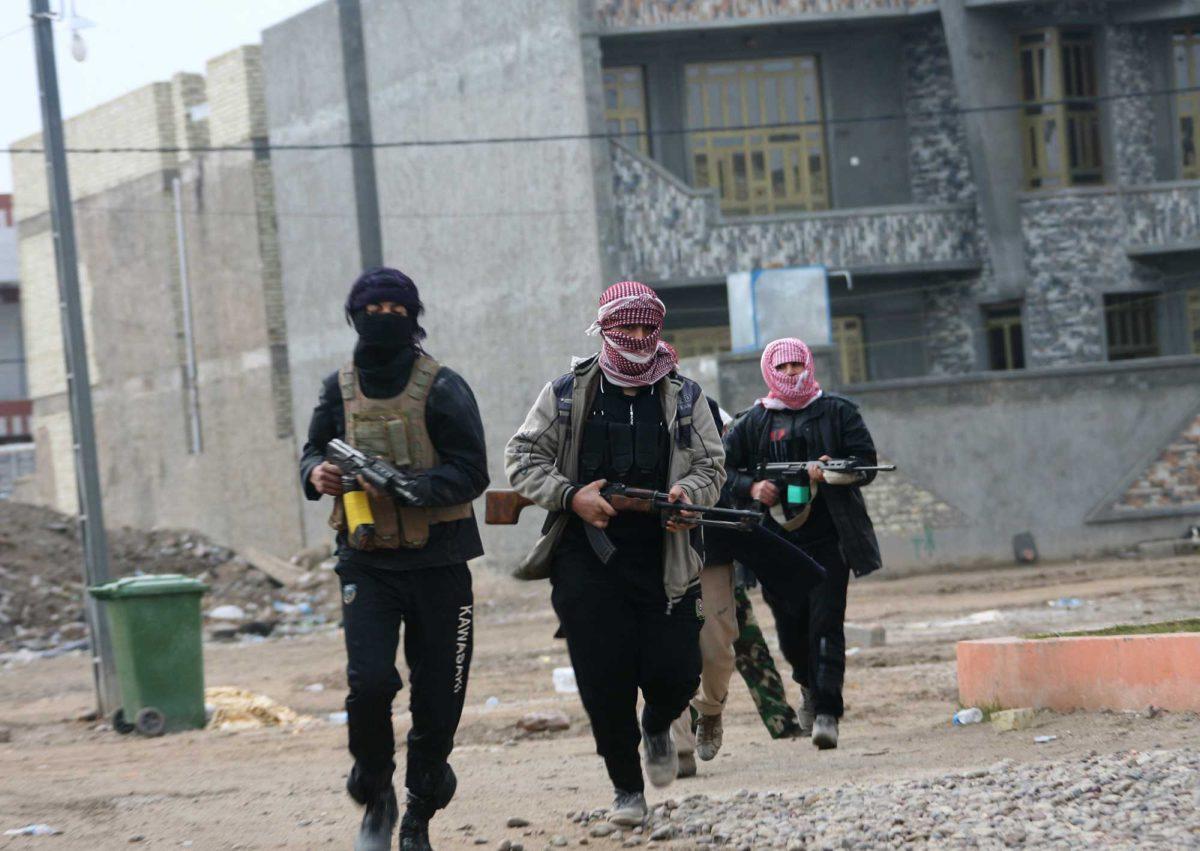Most of us know at least one veteran of the Iraq War, be it a friend, family member or co-worker. In the first few days of the New Year, our veterans received a swift kick in the teeth.
On Jan. 4, the Islamic State of Iraq and the Levant, took control over the cities of Fallujah and Ramadi in Iraq’s Anbar Province, which borders Syria. Anbar province was a stronghold of insurgent fighters after the fall of Saddam Hussein’s Baathist regime in 2003.
In 2004, after besieging Fallujah for a second time, American, Iraqi and coalition forces moved into the city and engaged in bloody door-to-door fighting, clearing the city of extremist fighters. It was one of the bloodiest battles for the United States Marine Corps since Huế City in the Vietnam War.
Responsibility for losing this hard fought area falls primarily on Iraqi Prime Minister Nouri al-Maliki’s feet, but a large portion of the blame must be attributed to the Obama administration, which failed to negotiate a renewal of our Status of Forces Agreement with Iraq. This would have allowed a small contingent of American troops to remain in country for an event such as this.
We have many similar bilateral agreements with countries all over the world, including South Korea and Japan. It allows us greater flexibility for maintaining a strong presence in potential hot spots for conflict, and for Iraq, which we thoroughly trounced in 2003, it was almost obligatory, lest it fall into chaos.
Now, we are seeing the fruit of the unwillingness to see the job done in Iraq, with two major cities now under partial ISIL control.
In response, Maliki has publicly stated that he will not order an assault on Fallujah or Ramadi, and he expects the local Sunni population to carry the weight of throwing out the insurgents. He fears that since his Shiite government is largely unpopular in Anbar, military force would only drive the local populace into the arms of ISIL.
This, however, sends a message to the locals that they are on their own, and it may further alienate them from a government that does not have the intestinal fortitude to exert its sovereignty and legitimate authority inside of its own borders.
The only way Iraq will survive long term as a stable Middle East democracy is if it has the strength to hold on to its own territory. We will never be able to rely on them as an ally against, say, Iran, if a few hundred thugs are able to make the government in Baghdad quiver with fear.
If Maliki refuses to act on his people’s behalf, then he should not be their leader, plain and simple. Imagine if members of a drug cartel crossed the Mexican border and seized El Paso and President Barack Obama refused to intervene. That’s tantamount to an invasion, and there would be a massive call for him to resign.
Fortunately for us, we know that won’t happen because Texas has the strength to subjugate most of Central America. Unfortunately for the people of Fallujah and Ramadi, they aren’t Texas.
If the administration has any respect for the Americans who gave their all for these areas, they will immediately enter into negotiations for a new SOFA with Iraq. It may be extremely unpopular, but that is the burden we bear for being a hegemonic power.
We cannot destroy a country, then expect it to take care of itself in the worst neighborhood on the planet when it is not prepared to do so.
Ryan McGehee is a 21-year-old political science, history and international studies senior from Zachary, La.
Opinion: Failure to maintain control in Middle East embarrassing
January 15, 2014
FILE – In this January 5, 2014, file photo, gunmen patrol during clashes with Iraqi security forces in Fallujah, 40 miles (65 kilometers) west of Baghdad, Iraq. With a new label – the Islamic State of Iraq and the Levant – the global terror network al-Qaida is positioning itself as a vanguard defending a persecuted Sunni community against Shiite-dominated governments across Syria, Lebanon and Iraq. The al-Qaida gains pose the most serious challenge to Prime Minister Nouri al-Maliki’s Shiite-led government since the departure of American forces in late 2011. (AP Photo, File)
More to Discover








